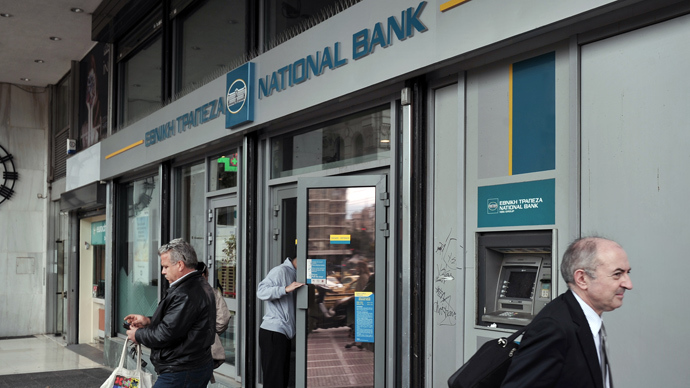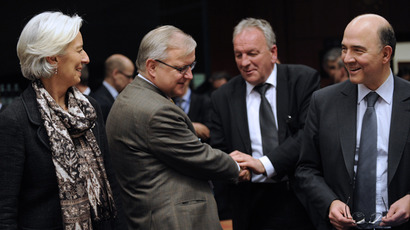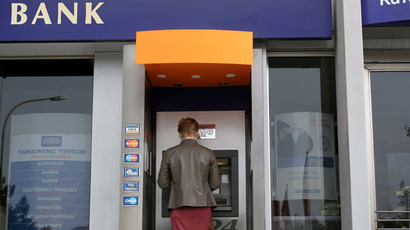Tragedy in 22 acts: EU delays Greek bailout payment

The European Union and International Monetary Fund are holding onto Greece’s next €2.5 billion bailout installment until Monday as they wait for the Greek Parliament to fulfill one last condition.
Before Greece can ‘unlock’ their next fiscal aid package, they
must follow the directive of the lenders and adopt one last
fiscal stipulation by the end of the day Thursday.
The last unfulfilled ‘step’ involves putting 4,200 government
employees into a ‘labor mobility scheme’, where workers are laid
off and the government tries to find them new jobs within eight
months.
The Troika of lenders – the IMF, the EU Commission, and the
European Central Bank - have asked Greece to fulfill 22 different
financial directives agreed upon in June in order to receive the
aid. Greece has “satisfactorily implemented” 21.
"Subject to confirmation of compliance with the last outstanding prior action, national procedures may thereafter be finalized and are expected to be completed by 29 July," Eurogroup President Jeroen Dijsselbloem said in a statement on Wednesday.
The Eurogroup will meet on Friday to vote on the bailout installments, and the financial transfer will be completed on Monday.
Once this last stipulation is passed by the Greek parliament, Dijsselbloem said the European Financial Stability Facility will be able to release the first sub-tranche of the next installment.
Last week, the Greek Parliament approved the redeployment of
25,000 public sector workers by the end of
the year in order to secure its last installment of $9.2 billion
(7 billion euro) from the Troika creditors.
"The euro area member states have been informed today by the Troika institutions that Greece has satisfactorily implemented the prior actions required for the release of the next disbursement under the financial assistance program, except for one action whose adoption by the Greek Parliament needs to be completed by Thursday, 25 July," Dijsselbloem said.
German Finance Minister Wolfgang Schaeuble visited Greece and
held talks with Prime Minister Antonis Samaras, and on Tuesday he
sent a letter to the German parliament that he couldn’t verify
Greece had fulfilled all 22 requirements.
Schaueble has said that Greece is ‘on the right track’ and their
austerity measures ‘will continue to pay off’.
Greece has received over $315 billion (240 billion euros) since 2010, as the EU seeks to help pull the troubled member state out of a deep 6-year recession which has spread throughout the continent.

'Point of no return'
IMF has admitted it has made mistakes in its handling of the crisis in Greece. The Greek economy continues to contract, and government debt has skyrocketed to 160.5 percent of gross domestic product at the end of Q1, and by most economists' estimates, is still on the rise. Unemployment remains rampant, as 27 percent of people are out of work.
Former Greek MP Eva Kaili told RT has criticized the Troika lenders for ‘experimenting in Greece’ and hopes the same mistakes aren’t repeated in other struggling economies.
Kaili believes Germany, along with the Troika of lenders, left Greece no choice in their recovery plan.
"They just tried to soak our country with these measures, without planning anything, without trying to implement the changes,” said Kaili. She added, “Germany is the only one that makes decisions and this power game should be reset.”














